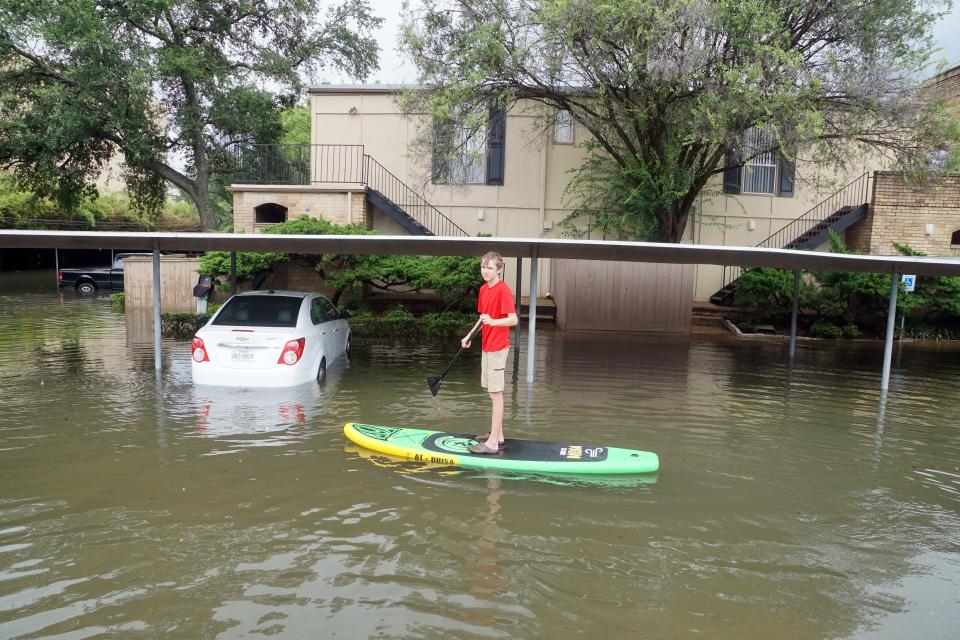A Houston residential neighbourhood is under water following days of heavy rains during Hurricane Harvey.
We are all praying for the people of Houston and surrounding areas: for their protection and safety, and for courage and consolation after the tremendous loss to persons and property the waters have caused. We pray for the means to put their lives back together after the devastating floods that have yet to abate.
We pray too for those heroic persons – some professionals, some just neighbors – who are risking their lives to save others. As we pray, we are called as well to contribute our resources to their aid. (One good vehicle is the Episcopal Diocese of Texas.)
Finally, we are called to some sober rethinking of our civil responsibilities more broadly. It isn’t all about theology. As the editors of The Philadelphia Inquirer put it: “You can blame God for a lot of things, but not all the flooding occurring in Houston is a result of divine intervention.”
“Blame” may or may not be the right word in the first place. But here, the editors rightly point out that, simply put, Houston’s urban sprawl has literally paved over hundreds of miles of what were once wetlands and other areas well adapted to soaking up heavy rains. Water now has nowhere to go but to inundate homes and living spaces. Devastating floods have been common in Houston, including deadly ones of just two years ago, yet unwise development has continued without interruption. Cities need to rethink paving strategies, and flood plains need to be emptied of development (the editorial lists good work in Milwaukee and Boulder on this front).
Our primary responsibilities right now lie with alleviating the suffering of Hurricane Harvey’s victims, and witnessing to the mercy of God. But just these victims and this mercy remind us that realistic urban planning is a moral burden as well. Wherever we live, we share in these demands.





